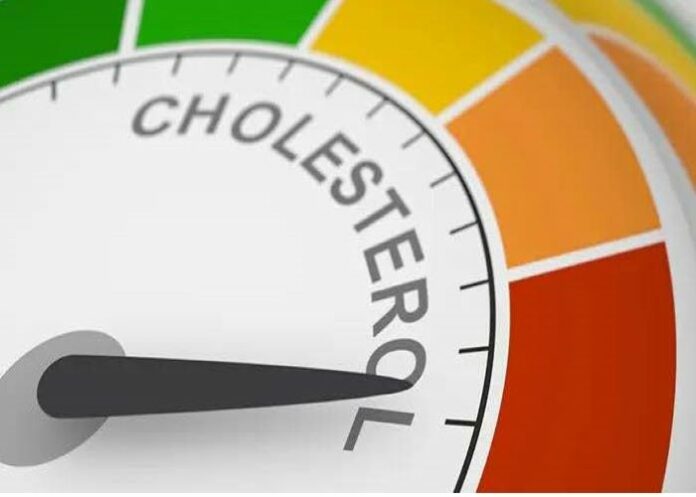The concept that levels of “good” cholesterol in the blood can indicate heart disease risk is not equally true for blacks and whites, and the measure itself may be of less value than previously thought, according to a recently published US study.
Various types of cholesterol are thought to have either healthy or unhealthy effects.
TimesLIVE reports that low levels of so-called “good” high-density lipoprotein (HDL) cholesterol were linked with higher odds for developing cardiac problems in the long-term study – but only in white participants, found the study, published in the Journal of the American College of Cardiology.
In a contradiction to what has generally been assumed, low HDL levels did not confer any higher risk of heart disease in black people, researchers said. Among white people, however, those with HDL levels below 40 milligrams per decilitre had a 22% higher risk for coronary heart disease compared with those whose HDL levels were higher.
High HDL levels (above 60 mg/dl), which are thought to be protective, were not linked with lower coronary heart disease risks in either race, researchers found.
“Typically at the doctor's office, those of us with higher HDL levels get a pat on the back for being at lower risk,” said study leader Nathalie Pamir of Oregon Health & Science University in Portland. “Now, instead of giving a pat on the back to people with high HDL, doctors should do nothing, or say: 'We don't know what this means’.”
High levels of “bad” low-density lipoprotein (LDL) cholesterol, typically treated with widely-used statins such as Lipitor, and triglycerides, were associated with increased heart disease risks in both races, her team found.
The study, funded by the National Institutes of Health, collected data over roughly 10 years from nearly 24 000 US adults, about 42% of whom were black. Participants of both races were similar in age, cholesterol levels, and other heart disease risk factors, the researchers said.
The early studies that shaped perceptions about healthy cholesterol levels overwhelmingly involved white American participants, Pamir said. “Our study puts a big question mark on the available biomarkers that we use to assess risk because they were developed without having all races in mind.”
Dr Keith Ferdinand of Tulane University in New Orleans, who was not involved in the research, warned that using HDL cholesterol levels to estimate risk “could inaccurately assess and possibly misclassify (coronary artery disease) risk in black adults and become a barrier to optimal care”.
Better estimates might be obtained, Ferdinand said, by measuring the amount of calcium that has accumulated in patients’ arteries and monitoring their levels of a form of cholesterol called Lp(a).
In all cases, he added, regardless of biomarker levels, “therapeutic lifestyle changes are the bedrock of prevention”.
Study details
Race-Dependent Association of High-Density Lipoprotein Cholesterol Levels With Incident Coronary Artery Disease
Neil Zakai, Jessic Minnier, Monika Safford, Marguerite Irvin Sergio Fazio, Mary Cushman Virginia Howard, Nathalie Pamir.
Abstract
Background
Plasma lipids are risk factors for coronary heart disease (CHD) in part because of race-specific associations of lipids with CHD.
Objectives
The purpose of this study was to understand why CHD risk equations underperform in black adults.
Methods
Between 2003 and 2007, the REGARDS (REasons for Geographic and Racial Differences in Stroke) cohort recruited 30,239 black and white individuals aged ≥45 years from the contiguous United States. We used Cox regression models adjusted for clinical and behavioural risk factors to estimate the race-specific hazard of plasma lipid levels with incident CHD (myocardial infarction or CHD death).
Results
Among 23,901 CHD-free participants (57.8% White and 58.4% women, mean age 64 ± 9 years) over a median 10 years of follow-up, 664 and 951 CHD events occurred among black and white adults, respectively. Low-density lipoprotein cholesterol and triglycerides were associated with increased risk of CHD in both races (P interaction by race >0.10). For sex-specific clinical HDL-C categories: low HDL-C was associated with increased CHD risk in white (HR: 1.22; 95% CI: 1.05-1.43) but not in black (HR: 0.94; 95% CI: 0.78-1.14) adults (P interaction by race = 0.08); high HDL-C was not associated with decreased CHD events in either race (HR: 0.96; 95% CI: 0.79-1.16 for white participants and HR: 0.91; 95% CI: 0.74-1.12 for black adults).
Conclusions
Low-density lipoprotein cholesterol and triglycerides modestly predicted CHD risk in black and white adults. Low HDL-C was associated with increased CHD risk in white but not black adults, and high HDL-C was not protective in either group. Current high-density lipoprotein cholesterol–based risk calculations could lead to inaccurate risk assessment in black adults.
See more from MedicalBrief archives:
Link found between HDL cholesterol and infectious disease risk
High level exercise link to increased coronary plaque in white men
More aggressive statin therapy sometimes needed to fight 'bad' cholesterol

